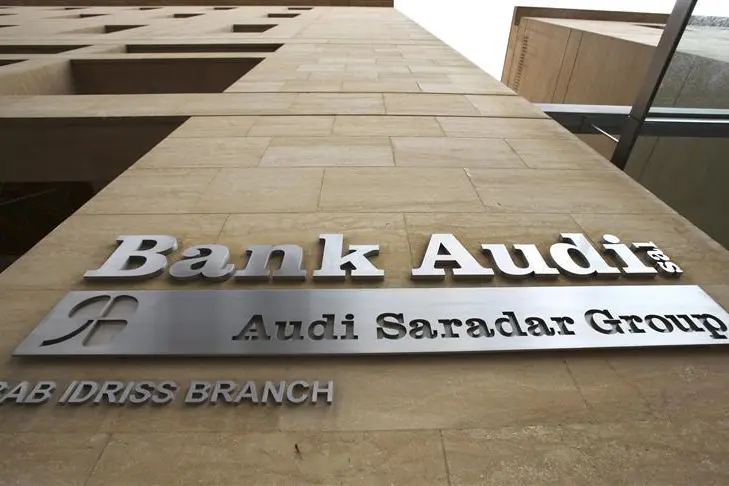PHOTO
BEIRUT - Lebanon's Bank Audi and Al-Mawarid Bank said on Wednesday they disagreed with a letter sent on behalf of the country's banking association that branded a staff-level agreement (SLA) with the International Monetary Fund "unlawful".
The SLA pledges $3 billion in financing over four years to help Lebanon recover from a financial meltdown that has seen the currency lose more than 90% of its value.
The two banks, as well as bankers from two other members of the Association of Banks in Lebanon (ABL) who asked to speak anonymously due to the sensitivity of the matter, said they were not aware the letter was being sent on ABL's behalf.
Their objection to the letter's contents reveals growing fissures in the association, which counts more than 50 banks as members.
In a statement, the ABL said it "does not fully oppose" the April agreement and views an IMF deal as one of the main ways to exit Lebanon's crisis, but called for further consultations on how some $70 billion in financial sector losses are dealt with.
A full agreement is conditional on Lebanon implementing a series of measures, including starting to restructure its zombie banking sector.
In the letter to the IMF dated June 21, the DecisionBoundaries financial advisory firm said its client, the ABL, "holds very serious reservations on the recent SLA", parts of which it said were "likely to further harm Lebanon's economy, probably in an irreparable manner".
It said implementing the SLA would be "unlawful".
An ABL spokesperson confirmed the letter had been sent on behalf of the association but did not immediately respond to questions on how the decision to send it was taken.
Carlos Abadi, managing director at New York-based DecisionBoundaries and the adviser who signed the June 21 letter, had no comment.
Audi, Lebanon's top bank, was "not made aware or approved the contents of the letter addressed to the IMF from a consultant of the ABL dated June 21, 2022", it said in a statement to Reuters.
"In fact, they acknowledge that the only way out of Lebanon's acute crisis is an IMF programme, which should be enacted imminently to avoid further irreversible value destruction," the bank statement said.
It noted the bank "has important reservations to ensure the plan is actionable, fair and sustainable. The proposed amendments, which still respect the IMF principles, are being channelled to the concerned parties".
'BEHIND CLOSED DOORS'
Al-Mawarid Bank was "not aware" of the letter and had not been invited to any meetings to discuss it, chairman Marwan Kheireddine told Reuters.
"It's ridiculous that this happens behind closed doors," Kheireddine said, adding that the letter made it sound like banks were "in denial" about having to "be part of the solution and accept to bear certain losses".
"The letter was done without consultation from any other ABL member. It's a bloody scandal," one of the bankers said.
"We are quite upset about it," another said.
The SLA and Lebanon's May 20 financial recovery plan had called for limiting recourse to public resources to resolve financial sector losses.
The ABL letter instead called for the Lebanese state to plug the gap by using state assets, turning tens of billions in hard-currency deposits into Lebanese pounds and also using Lebanon's roughly $15 billion in gold reserves.
"I hear voices - including some within ABL - suggesting using our gold to pay depositors... Don't touch the gold, whether to sell it, to pledge it, or to financial engineer it. Don't. Touch. The. Gold," Bankmed CEO Michel Accad said in a tweet on Wednesday.
(Reporting by Timour Azhari and Maya Gebeily; Editing by Emelia Sithole-Matarise and Nick Macfie)





















